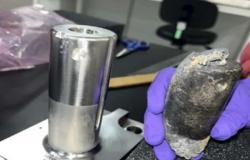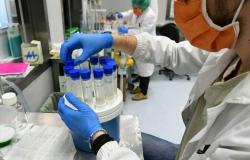Bonuses, tax credits, tax breaks, incentives for the employment of young people and women. Welcome to the South where there are at least 10 excellent and exclusive reasons to open new businesses. Or to expand those that already exist. The list of opportunities that make investing in the South convenient for young entrepreneurs (innovative startups and surrounding areas) and seniors is long and concrete. Without considering national measures, such as institutional development contracts or the Sabatini law, which traditionally have a very strong impact in this area. The State provides most of the resources, non-repayable and non-repayable, the Regions do not stand by and this is why, despite still evident infrastructural deficiencies and profound organizational and skills limitations of the Public Administration, the positive balance of companies born in the South in 2023 it is higher than the national average (+0.78% versus +0.70%, data from Movimprese and Istituto Tagliacarne). According to a good approximation, public intervention covers 60-70% of the total investment of a new business: practically free or here’s where and how it can be accessed.
Rest in the South 2.0
It is the updated version of the self-entrepreneurship measure introduced in 2016 (Southern Minister Claudio De Vincenti) to encourage young people to set up business in the South and extended this year, on the eve of the deadline, by the Meloni government (it is part of the Cohesion Decree with some changes). More than 14 thousand new businesses have been created so far thanks to the mix of two incentives, half of which are non-repayable grants and the other half are bank loans. It provides vouchers of up to 40,000 euros for the purchase of goods for starting a business (which becomes 50,000 if they are digital goods or for energy saving) and non-repayable contributions that cover up to 75% of the expense if you invest up to 120,000 euros and up to 70% if up to 200,000 euros. It is reserved for young people under 35 and access to the resources (500 million between 2024 and 2025) will be defined by the implementing decrees of the Ministry of Labor expected 30 to 90 days after the conversion into law of the Cohesion reform, expected for the first July, as emerged in recent days in the Budget Committee of the Chamber.
Zes Unica tax credit
There are 1,800 million euros on this which is announced as the true test of the South’s attractiveness. In concrete terms, for the three-year period 2024-2026, companies from the South that acquire capital goods can benefit from a contribution in the form of ” single ZES tax credit” financed by the 2024 Budget Law. It applies to purchases intended for production structures in the southern regions both for new settlements and for the strengthening of existing ones. The credit is commensurate with the amount of investments made from 1 January 2024 to 15 November 2024 up to a maximum limit of 100 million euros for each investment project. Investment projects whose total cost is less than 200,000 euros are not eligible.
Zes Unica hiring bonus
It is part of the measures of the Cohesion Decree and provides for a 100% exemption from the payment of contributions for two years in favor of employers operating in the southern regions and who hire workers over the age of 35 who have been unemployed for at least 24 months, even if they have already had a permanent contract in life. This is one of the three contribution exemptions provided for by the Decree, together with the Bonus for women of any age and the Bonus for young people under 35.
Under 35 South hiring bonus
The hiring of young people under 35, carried out from September 2024 to December 2025 in an office located in the SEZ, is incentivized with a 100% contribution relief up to a ceiling of 650 euros per month, in compliance with all other requirements.
South women bonus
The incentive is a 100% exemption from contributions, up to a ceiling of 650 euros per month and applies to the hiring of disadvantaged women. This is defined as workers of any age, without a regularly paid job for at least six months, residing in the regions of the single Special Economic Zone for the South. Or without regular paid employment for 24 months, regardless of where they live. The hiring must lead to an increase in employment in the company.
Southern decontribution
The measure, which is worth 3.3 billion and has supported the employment of companies in the South (also with the stabilization of fixed-term contracts) expires on 30 June and cannot be extended in its current version, as Minister Fitto has explained several times: in fact, the extraordinary conditions provided by the EU to derogate from the blockade of state aid (Covid and war in Ukraine) no longer exist. However, the government is working on a further extension and in any case on keeping the measure alive, making it structural, albeit with a new path about which little is known at the moment.
South composting plants tax credit
This year it is also possible to submit applications to obtain the tax credit for documented expenses relating to the installation and commissioning of composting plants at agri-food centers in the South. The maximum limit foreseen for 2024 is one million of Euro. Applications have been open since last April.
Research & Development South
From 10 July it will be possible to submit an application for Smart Specialization, the measure of the Fund for Sustainable Growth (FCS) for companies in the South. The measure is intended to support the projects of companies admitted to the subsidized financing of the FRI (Revolving Fund for support for businesses and investments in research), accompanied by direct contributions to spending to support activities, with percentages of up to 40%. The intervention supports the implementation of industrial research and experimental development projects of strategic importance. The eligible projects must be consistent with the thematic areas of the National Smart Specialization Strategy (SNSI), i.e. aimed at identifying evolutionary technological and application trajectories thereof. For the necessary resources, there is the contribution of Cassa Depositi e Prestiti and the affiliated financing banks.
Southern agricultural machinery
Sub-measure 2.3 of the Pnrr provides for the provision of an extra non-repayable contribution for the modernization of agricultural machinery in Campania, Calabria, Sicily, Puglia and Basilicata. This loan is intended for both agricultural companies and agro-mechanical companies, with the aim of modernizing the machinery fleet in compliance with the best available technologies and with particular attention to reducing the environmental impact of the agricultural sector. Furthermore, the investment takes into account ongoing climate changes, which increase the frequency of drought-related emergencies, directly involving the agricultural sector, whose quality production depends on the possibility of irrigating crops. The beneficiaries include agro-mechanical companies, micro, small and medium-sized agricultural enterprises, as well as related cooperatives and associations.
Southern Regions Bonus
Stage number 10 of this journey between incentives and reliefs in a Southern key. Bonuses linked to the territory are foreseen in all the southern regions: for example, from the one for the wine sector in Sicily to the trade fair bonus existing in Puglia, from the tourism announcement of Cosenza to the video surveillance bonus of Salerno, from vouchers for companies in Lecce to those for SMEs in Campania. From the series: once upon a time there was a taboo about doing business in the South.





